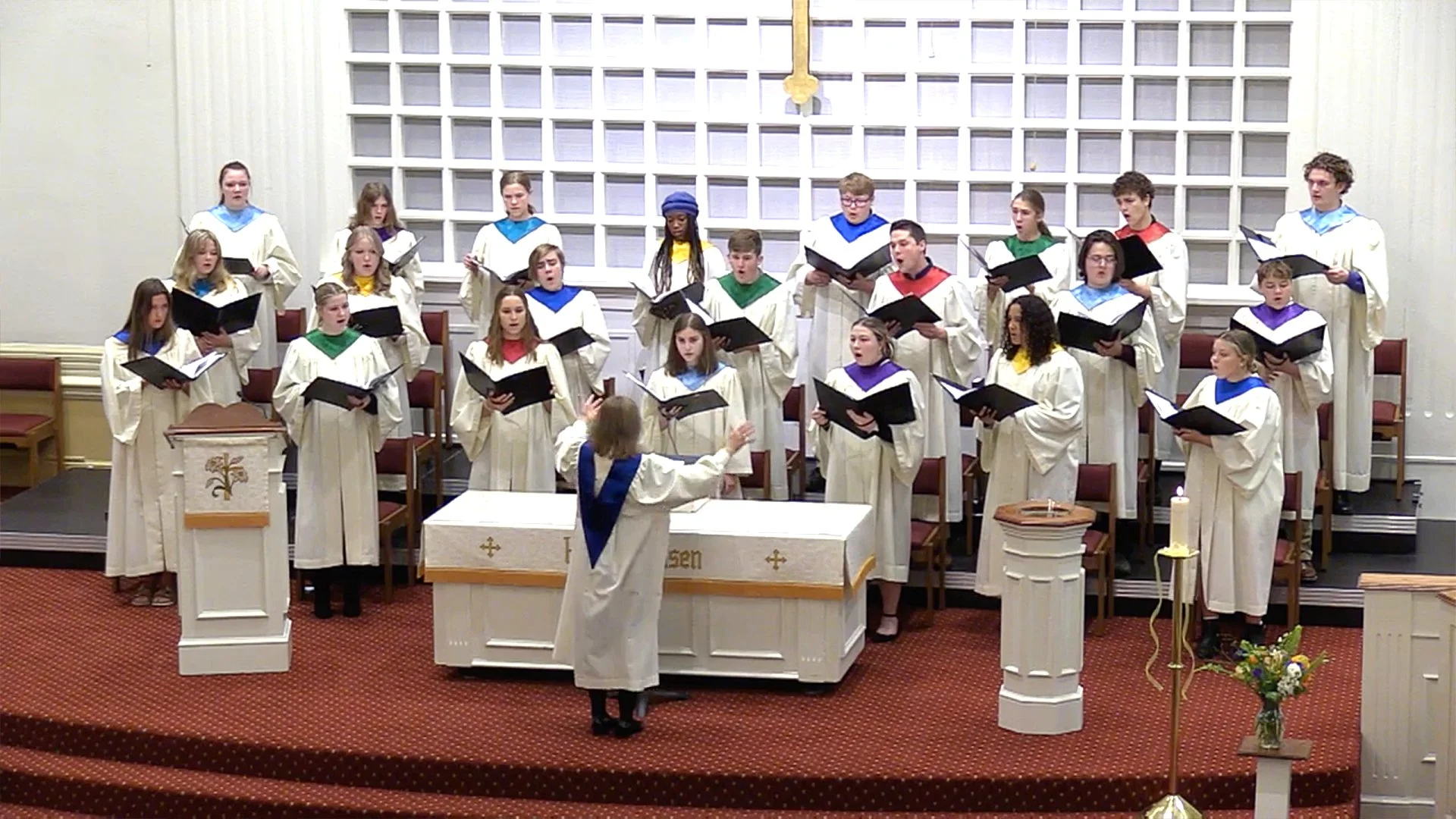Hymn of the Week: March 8, 2024
O For a Thousand Tongues to Sing
Glory to God: 610
Text. Charles Wesley:1739
Music Carl Gläser: 1828
O for a thousand tongues to sing
My dear Redeemer’s praise,
The glories of my God and King,
The triumphs of God's grace!
The name of Jesus charms our fears,
and bids our sorrows cease;
Sings music in the sinner’s ears,
Brings life, and health, and peace.
Christ speaks and listening to his voice
new life the dead receive;
the mournful waken to rejoice;
The poor in heart believe.
My gracious Master and my God,
Assist me to proclaim,
To spread through all the earth abroad
The honors of Thy name.
To God all glory, praise and love
Be now and ever given
By saints below and saints above,
The church in earth and heaven,
Hymn Texts, A Devotional
Today’s devotion comes to us from a book I have used over the past few years. Unrevealed Until It’s Season by James C. Howell, published by Upper Room Books.
Lost in Praise
Charles Wesley certainly got lost in praise, and his hymns capture the way we finally understand our sin from God’s viewpoint when we are swept up in praise. “O For a Thousand Tongues to Sing” is the first hymn in Methodist hymnals and is almost the anthem of Methodism. It originally stretched to 19 verses – as if Wesley could not contain his wonder, love, and praise.
He wrote this hymn on the anniversary of his conversion. It was reportedly inspired by a chance remark by a Moravian missionary named Peter Böhler: “Had I a thousand tongues, I would praise him with all of them.”
What do we think as we sing, “O For a Thousand Tongues?” Frankly, the one tongue you have doesn’t praise God very much. We are so utilitarian when it comes to God. What’s God done for me lately? What do I fantasize God will do for me next?
St. Augustine distinguished between two Latin words for love. Uti is love of use: I love something, not in and of itself, but because I use it for something else. I love money. I don’t want to cuddle with it, or frame it; I love it because I can use it to get other things I want. Then there’s frui, the love of enjoyment, what I love . . . just because. I love chocolate, not because of what I get out of it. I just love it, I must have it.
We tend to love God with uti – I think I’ll use God to get stuff I want – when God is seeking frui from us, simple adoration, what Wesley called “my great Redeemer’s praise, the glories of my God and King.”
Praise, frui, for God, is a gift we ask for: “Assist me to proclaim.” Praise is also the fruit of long practice, an extended retraining of the soul. Praise isn’t a mood but a disposition of your character. Rabbi Jonathan Sacks reminds us, “It would have been easy for God to create a billion computers programmed to sing His praises continually. But that would not be worship.”
deepest selves stirred
Charles Wesley had been a bit of a dogged, computer–like adherent to Christianity. He’d never missed church. He was engaged in Bible study, disciplined prayer, and service to the poor. He was dedicated to small groups of mutual accountability. So his “conversion” wasn’t as if he were a pagan one day and a believer the next. For Charles and his big brother John, the magic of 1738 was that the truths of the faith and the activities of holiness incumbent on the believer bored their way deep into our hearts. It got personal. Their deepest selves were stirred. “He sets the prisoners free.” Churchy religiosity can be a kind of bondage. No wonder many congregations sing this hymn on Reformation Sunday.
John Wesley explained that he finally grasped that what Christ had done was done pro me, “for me.” Not for me only, but most assuredly for me. This personalized “for me” is echoed in Charles’s hymn: “His blood availed for me.” He’d known about Jesus’ sacrificial atonement on the cross and had preached it and composed hymns about it. But in the spring of 1738, it was as if a new person was birthed out of that old one. He’d been born into a Christian household. Now he was born again, with passion and assurance.
Böhler’s (and Wesley’s) wish for a thousand tongues, which is vivid hyperbole, is granted when we recall that we never praise God alone. I might be in a sanctuary with a few dozen others. But at that moment, dozens of dozens of others are praising in churches nearby. If we think of the churches across the globe and God’s people throughout time, the numbers begin to stagger the mind. What do we sing at Christmas? “Sing all ye citizens of heaven above.” Saints and our own beloved, a countless host, join with us, even leading us in praise. They don’t have that uti/frui dilemma we do. They just praise God constantly and are filled with delight. Our praise is never a solo. We are part of Christ’s universal body that praises together.








